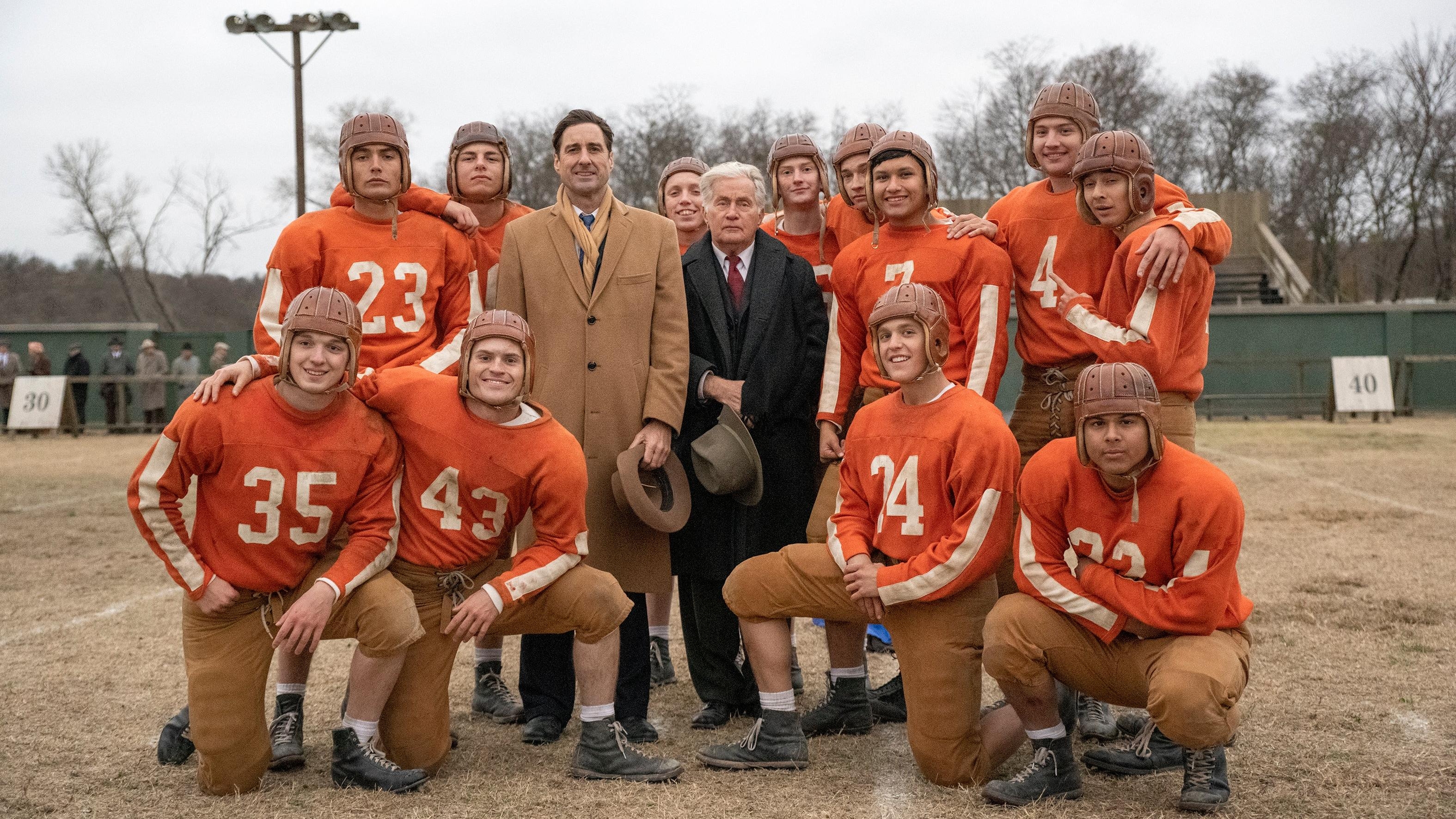12 Mighty Orphans pulls at least a dozen clichés from the underdog sports movie playbook
It's based on a true story, but that doesn't prevent it from feeling manufactured
Film Reviews 12 Mighty Orphans

Underdog sports movie adhere to such a rigid template that it sometimes seems as if the genre has somehow retroactively warped history itself, bringing past events in line with its narrative requirements. 12 Mighty Orphans tells the true story of a Depression-era high school football team improbably formed at a Texas orphanage, but the screenplay may as well have been invented from whole cloth, given its relentlessly formulaic nature. Every anticipated beat shows up right on schedule, from the arrival of the new, unconventional, gruff but caring head coach to the climactic big game that’s decided on its final play. (Just once, let a team that’s well ahead run out the clock.) Even incidental details are tired: “Yo, it’s the 1930s” gets signified by Franklin D. Roosevelt intoning “The only thing we have to fear is fear itself,” even though the film takes place in 1938 and that famous line is from Roosevelt’s 1933 inauguration speech. This degree of familiarity can be either soothing or suffocating, according to taste, so adopt 12 Mighty Orphans only if you’re in the mood to see a movie simultaneously for the first and the umpteenth time.
To lose one parent can be regarded as a misfortune, Oscar Wilde noted, but to lose both looks like carelessness. The joke isn’t so funny at Fort Worth’s Masonic Home, at which being an orphan feels downright punitive; the superintendent (Wayne Knight) regards them primarily as a source of free labor, beating them for minor infractions and generally treating them like prison inmates. Consequently, a dozen of the boys are receptive when Rusty Russell (Luke Wilson), who’s just been hired to teach math and science, suggests that a football team might offer them a sense of purpose and fellowship—or at least get them away from the on-site printing press occasionally. (In one uncharacteristically witty touch, players are forced to slave away on posters commissioned by and supporting a rival team.) Initially, the team lacks helmets, shoulder pads, cleats (they practice barefoot), even a regulation ball. “What was Coach Russell thinking?” an announcer helpfully asks over the loudspeaker, just in case we somehow hadn’t noticed that he’s trying to spin gold from a pile of straw. Masonic Home loses its first game 35-0. Things look bleak.
Even if you know nothing about the “Mighty Mites,” as these smaller-than-average kids were soon nicknamed, you can accurately guess what follows. Some of the developments, however, are hard to swallow, even if they may be rooted in fact. Russell gets credited as a key innovator in what would become the spread offense, which made the forward pass—which was previously somewhat rare, as football was mostly a running game for its first few decades—much more effective. But did he really get the idea for a Wing T formation from his young daughter, who altered a diagram he’d made at home? Did the league attempt to boot Masonic Home from the semifinals on the grounds that one player had misrepresented his age, and did President Roosevelt (Larry Pine) actually intervene to prevent it? Such mechanistic-seeming plot twists would be easier to accept at face value were it not for, say, Martin Sheen’s supporting role as Doc, the medic/assistant coach who carries a flask with him at all times but grits his teeth and pours his liquor out prior to the final game—an inspiring moment that might have come from Hoosiers, in which Sheen’s Apocalypse Now costar Dennis Hopper plays the alcoholic assistant coach.
Occasionally, 12 Mighty Orphans throws a slight curveball (to mix sports metaphors). That final game’s traditional rousing halftime locker-room speech, for example, is delivered not by Coach Russell but by one of the players, Hardy Brown (Rectify’s Jake Austin Walker), who quotes lines from The Iliad (taught to him by Russell’s wife, Juanita—a thankless role for Vinessa Shaw). For the most part, though, director and co-screenwriter Ty Roberts is content to hit his marks, generating pre-processed emotions. The dusty Texas landscape has more personality than do most of the orphans, though Jacob Lofland (Mud, Justified) remains a distinctively gawky screen presence. And while Roberts gets solid if unremarkable work from Wilson and Sheen, he also either encourages or allows a wildly over-the-top performance by Lucy Faust as the quarterback’s mother, who unexpectedly turns up to reclaim him in the middle of the season—another plot point that feels phony onscreen even if it actually happened. 12 Mighty Orphans was adapted from a 2008 book by sports author Jim Dent, who’s currently in prison on 10 DWI convictions; he jumped bail and fled to Mexico before finally cutting a plea agreement, and as recently as last August was attempting to secure his release for fear of catching COVID-19. His story might have been more interesting. More novel, at the very least.